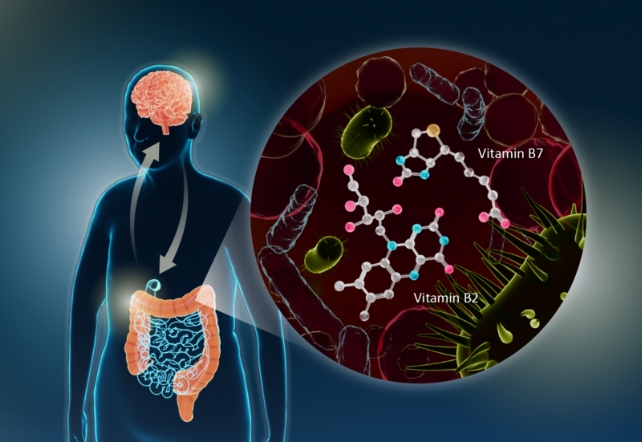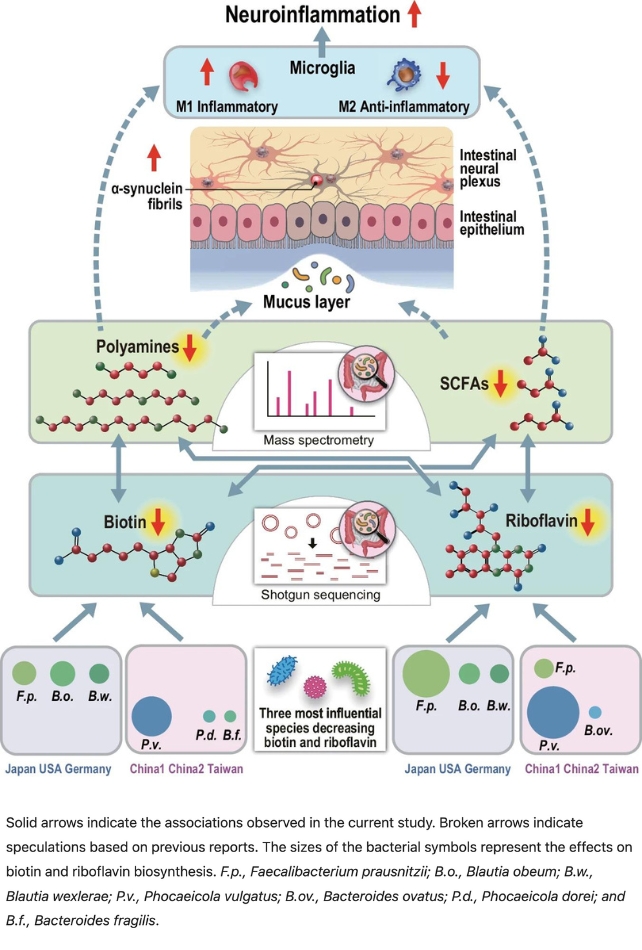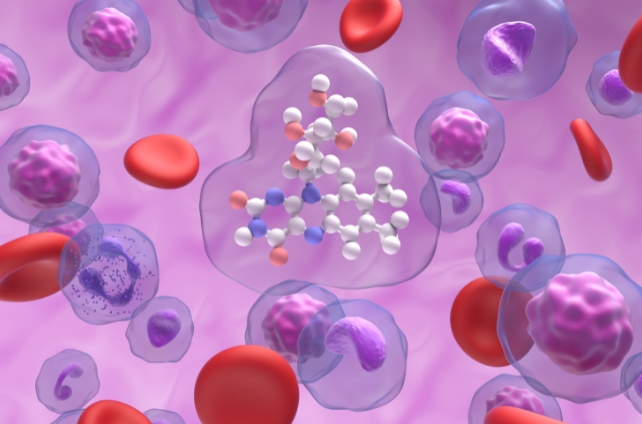Researchers have suspected for some time that the link between our gut and brain plays a role in the development of Parkinson's disease.
A recent study identified gut microbes likely to be involved and linked them with decreased riboflavin ( vitamin B2) and biotin (vitamin B7), pointing the way to an unexpectedly simple treatment that may help: B vitamins.
"Supplementation of riboflavin and/or biotin is likely to be beneficial in a subset of Parkinson's disease patients, in which gut dysbiosis plays pivotal roles," Nagoya University medical researcher Hiroshi Nishiwaki and colleagues write in their paper published in May.
The neurodegenerative disease impacts almost 10 million people globally, who at best can hope for therapies that slow and alleviate symptoms.
Symptoms typically begin with constipation and sleep problems, up to 20 years before progressing into dementia and the debilitating loss of muscle control.
Previous research found people with Parkinson's disease also experience changes in their microbiome long before other signs appear.

Analyzing fecal samples from 94 patients with Parkinson's disease and 73 relatively healthy controls in Japan, Nishiwaki and team compared their results with data from China, Taiwan, Germany, and the US.
While different groups of bacteria were involved in the different countries examined, they all influenced pathways that synthesize B vitamins in the body.
The researchers found the changes in gut bacteria communities were associated with a decrease in riboflavin and biotin in people with Parkinson's disease.

Nishiwaki and colleagues then showed the lack of B vitamins was linked to a decrease in short-chain fatty acids (SCFAs) and polyamines: molecules that help create a healthy mucus layer in the intestines.
"Deficiencies in polyamines and SCFAs could lead to thinning of the intestinal mucus layer, increasing intestinal permeability, both of which have been observed in Parkinson's disease," Nishiwaki explains.

They suspect the weakened protective layer exposes the intestinal nervous system to more of the toxins we now encounter more regularly. These include cleaning chemicals, pesticides, and herbicides.
Such toxins lead to the overproduction of α-synuclein fibrils – molecules known to amass in dopamine-producing cells in the substantia nigra part of our brains, and increased nervous system inflammation, eventually leading to the more debilitating motor and dementia symptoms of Parkinson's.
A 2003 study found high doses of riboflavin can assist in recovering some motor functions in patients who also eliminated red meat from their diets.
So it's possible that high doses of vitamin B may prevent some of the damage, Nishiwaki and team propose.

This all suggests ensuring patients have healthy gut microbiomes may also prove protective, as would reducing the toxic pollutants in our environment.
Of course, with such a complicated chain of events involved in Parkinson's disease, not all patients likely experience the same causes, so each individual would need to be assessed.
"We could perform gut microbiota analysis on patients or conduct fecal metabolite analysis," explains Nishiwak.
"Using these findings, we could identify individuals with specific deficiencies and administer oral riboflavin and biotin supplements to those with decreased levels, potentially creating an effective treatment."
This research was published in npj Parkinson's Disease.
An earlier version of this article was published in June 2024.